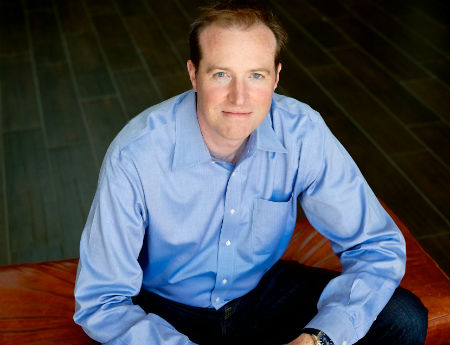Sonic.net CEO: Tiered Pricing ‘Doesn’t Make Sense’
The smarter way to stay on top of the multichannel video marketplace. Sign up below.
You are now subscribed
Your newsletter sign-up was successful

In the view of Sonic.net CEO Dane Jasper, ISPs that charge based on speed tiers and data usage are employing policies that some consumers might view as fair, but are likewise artificially contrived by those service providers.
Installing tiered broadband services is “just configuration. That’s cost-less,” Jasper said in a recent interview, noting that his true costs are in elements such as the loop, the building out fiber, the consumer premises equipment, providing customer care, and the sales and marketing of the product.
But he acknowledges that many consumers believe that tiered pricing is a fair proposition, because they are used to a pay-more-to-get-more model. For example, they’re typically willing to shell out more for a porterhouse steak than for a petite filet.
“The difference is that in the steak [example], there’s more cow. It’s not artificial. There’s a higher materials cost,” Jasper said. “But when it comes to broadband performance and speed, the limits are artificial. They sound fair, but they’re entirely contrived. There isn’t a cost around speed. We believe that tiered pricing doesn’t make sense.”
Jasper and Sonic.net will be taking that ideology to task in the months ahead as it prepares the deployment of a fiber network to about 8,000 homes in the Bay Area city of Brentwood that will deliver a 1 Gbps broadband/voice service mix that will sell for about $40 to month.
That’s the same price Sonic.net charges for a broadband/voice duo it offers on its more widely deployed copper-based plant, which reaches about 5 million California homes in 110 cities, including Los Angeles, the San Francisco Bay Area, and the Sacramento region. A small portion of Sonic.net’s existing plant is all-fiber, serving Gigabit and voice service to residents in Sebastopol in the North Bay, and to a business park in Santa Rosa.
On the copper side, the big difference is speed. In that part of its footprint, Sonic.net matches a feature-filled voice product with a 20 Mbps service based on ADSL2+ technology, also for $40 per month.
The smarter way to stay on top of the multichannel video marketplace. Sign up below.
“We just sell the pipe as fast as it will go,” Jasper said.
Sonic.net is also conducting some VDSL2 trials with commercial customers that pump out 200 Mbps down by 20 Mbps upstream by bonding together eight copper pairs, but the ISP expects its single-line residential offering to be somewhere in the neighborhood of 50/10, though the ISP needs more real-world data to determine what will be realistic.
Head Start in Brentwood
In Brentwood, the commitment to the city is to start connecting homes within nine months, and to complete the buildout to 8,000 locations within fifteen months. “We’re actively in the design phase,” Jasper said.
Sonic.net will have somewhat of a head start in that part of Brentwood, Jasper explained, because the city had foresight in 1999 to set subdivision improvement standards that included an obligation requiring developers to build conduit for future fiber buildouts. That means less digging around the
neighborhoods, through Sonic.net will still need to interconnect the patchwork of individual subdivisions.
To spur interest, Sonic.net has taken a page from the Google Fiber playbook by opened a pre-signup portal that will determine where the ISP builds out 1-Gig first. Sonic.net will also offer those residences an option to get a 5 Mbps Internet service for five years for free, in exchange for a one-time $300 connection fee.
Sonic.net has also agreed to build out at least one Brentwood neighborhood that doesn’t have the pre-built fiber conduits, and will use a demand-based approach to make that determination. Demand for that conduit-free neighborhood “needs to be substantial,” Jasper said.
Under this initial sign-up period, Sonic.net is not asking for a service commitment (that will happen in a later phase), but as part of the survey the ISP is also gauging interest on whether prospective customers would also be interested in a TV package. Jasper said about 550 residents completed the survey during the first six days it was posted.
Sonic.net’s long-term goal, though, is to overbuild itself and convert all customers to fiber.
“And when that happens, the price stays the same. They’ll just get an uncapped, untiered, unlimited fiber service,” Jasper said.
